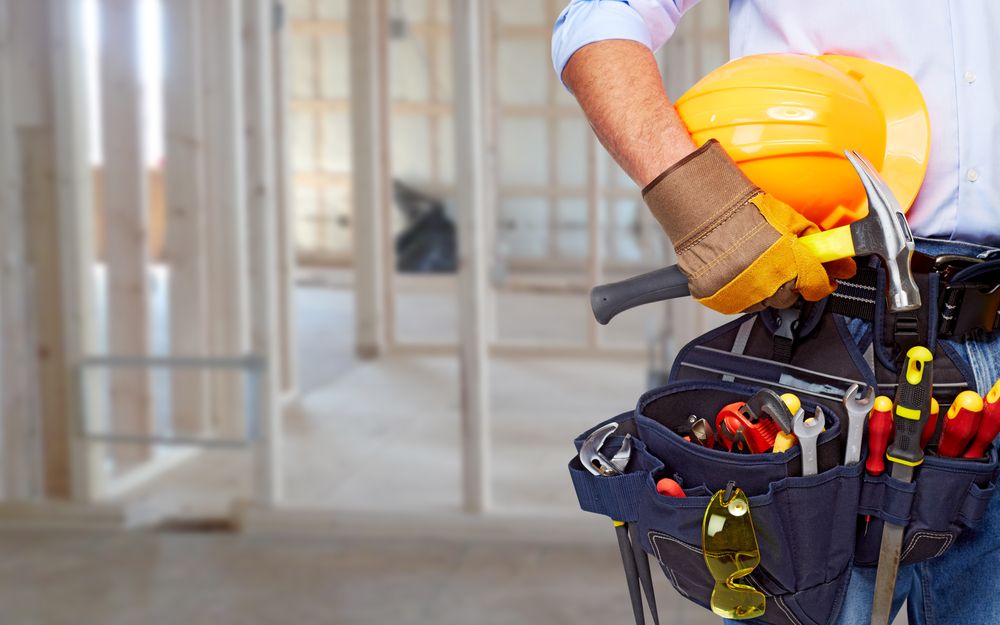
When it comes to maintaining a home, the list of potential projects can seem endless. From a dripping faucet to a creaky floorboard, the small annoyances can quickly add up to a big headache. But before you reach for the phone to call a professional, consider this: with a little bit of knowledge and the right tools, many home repair tasks can be handled on your own. Not only does this save you the cost of labor, but it also gives you the satisfaction of having fixed the problem with your own two hands.
In this piece, we’ll explore five essential DIY home repair skills that can save you money while keeping your home in top shape. Whether you’re a seasoned DIY enthusiast or a beginner looking to build your skill set, these tips will help you tackle common household repairs with confidence.
Basic Plumbing Repairs
Understanding the basics of your home’s plumbing system can save you hundreds, if not thousands, of dollars in repair costs over the years. One of the most common issues homeowners face is a leaky faucet. With a few simple tools—a wrench, some plumber’s tape, and maybe a new washer or valve seat—you can often fix this issue in under an hour.
Toilet repairs are another area where DIY skills come in handy. Replacing the flapper or adjusting the float are simple tasks that can cure most running toilet problems. And let’s not forget about unclogging drains. Instead of buying harsh chemicals or calling a plumber, a plunger or a plumber’s snake can usually do the trick.
Learning to replace a showerhead or install a new faucet can also lead to significant savings. These projects might sound intimidating, but with a little research and patience, most homeowners can handle them without calling a professional.
Electrical Fixes and Safety
Dealing with electricity requires caution and respect. Safety is paramount, so always shut off the power at the breaker box before beginning any electrical work. Simple tasks like replacing a light switch, changing out an outlet, or installing a new light fixture are well within the reach of most DIYers.
Understanding how to troubleshoot a tripped circuit breaker or reset a GFCI outlet can also help you solve electrical issues without the need for a service call. However, it’s important to know your limits. If you’re not confident in your ability to perform an electrical repair safely, it’s always best to call a licensed electrician.
Learning to recognize the signs of more serious electrical problems, such as flickering lights or a burning smell, is equally important. These symptoms may indicate a need for professional help and should not be ignored.
Painting and Wall Repairs
A fresh coat of paint is one of the most cost-effective ways to transform a room. But before you start painting, you’ll need to prepare the surfaces. Learning how to patch small holes and cracks in your walls can make a significant difference in the final result. All you need is some spackle, a putty knife, and sandpaper.
For larger repairs, understanding how to apply and sand joint compound, as well as how to use a drywall patch kit, will ensure that your walls look smooth and professional. When it comes to painting, mastering cutting-in techniques will help you achieve sharp lines without the need for painter’s tape.
Choosing the right type of paint and tools for the job is also crucial. Investing in quality brushes, rollers, and paint can save you time and yield better results in the long run.
Flooring Fixes
Flooring is often the unsung hero of home aesthetics, and keeping it in good condition can significantly impact the look and feel of your space. Squeaky floorboards, for instance, can often be silenced with the strategic placement of a few nails or the application of a lubricant.
For tile floors, learning how to replace a cracked tile or re-grout your bathroom can bring a tired-looking space back to life. With vinyl or laminate flooring, understanding how to replace damaged sections will keep your floors looking great for years to come.
Carpet repairs, such as re-stretching to remove wrinkles or patching to fix small areas of damage, can also extend the life of your carpeting without the need for a full replacement.
Weatherproofing and Insulation
Keeping your home properly weatherproofed is essential for comfort and energy efficiency. Caulking around windows, doors, and other openings can prevent drafts and reduce your heating and cooling costs. Similarly, installing weather stripping can seal gaps and contribute to a more consistent indoor temperature.
Adding insulation to your attic, basement, or crawl spaces can also lead to significant savings on your energy bills. While some insulation projects might be more complex, there are plenty of materials and methods that are suitable for DIYers, such as installing batt insulation or using spray foam for smaller gaps.
Learning to recognize and fix air leaks, insulate pipes, and maintain your HVAC system will not only save you money but also improve the overall comfort of your home.
Conclusion
Arming yourself with these DIY home repair skills not only saves money but also empowers you as a homeowner. The ability to tackle basic plumbing, electrical fixes, wall repairs, flooring issues, and weatherproofing tasks can lead to a well-maintained home and a sense of pride in your living space. While some projects might require professional help, many repairs can be done safely and effectively with a bit of knowledge and the right tools. Remember, the key to successful DIY home repair is to start small, build your skills over time, and always prioritize safety. So, grab your toolbox, roll up your sleeves, and start making those money-saving repairs today!
